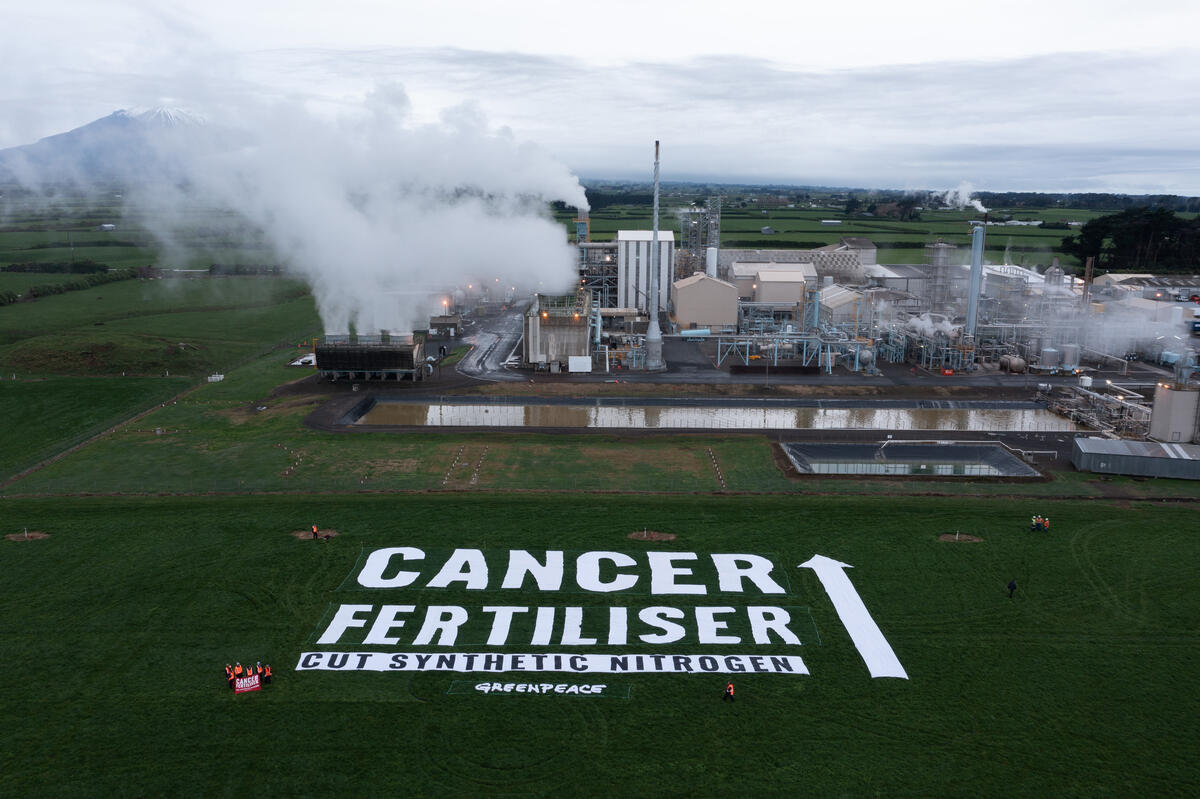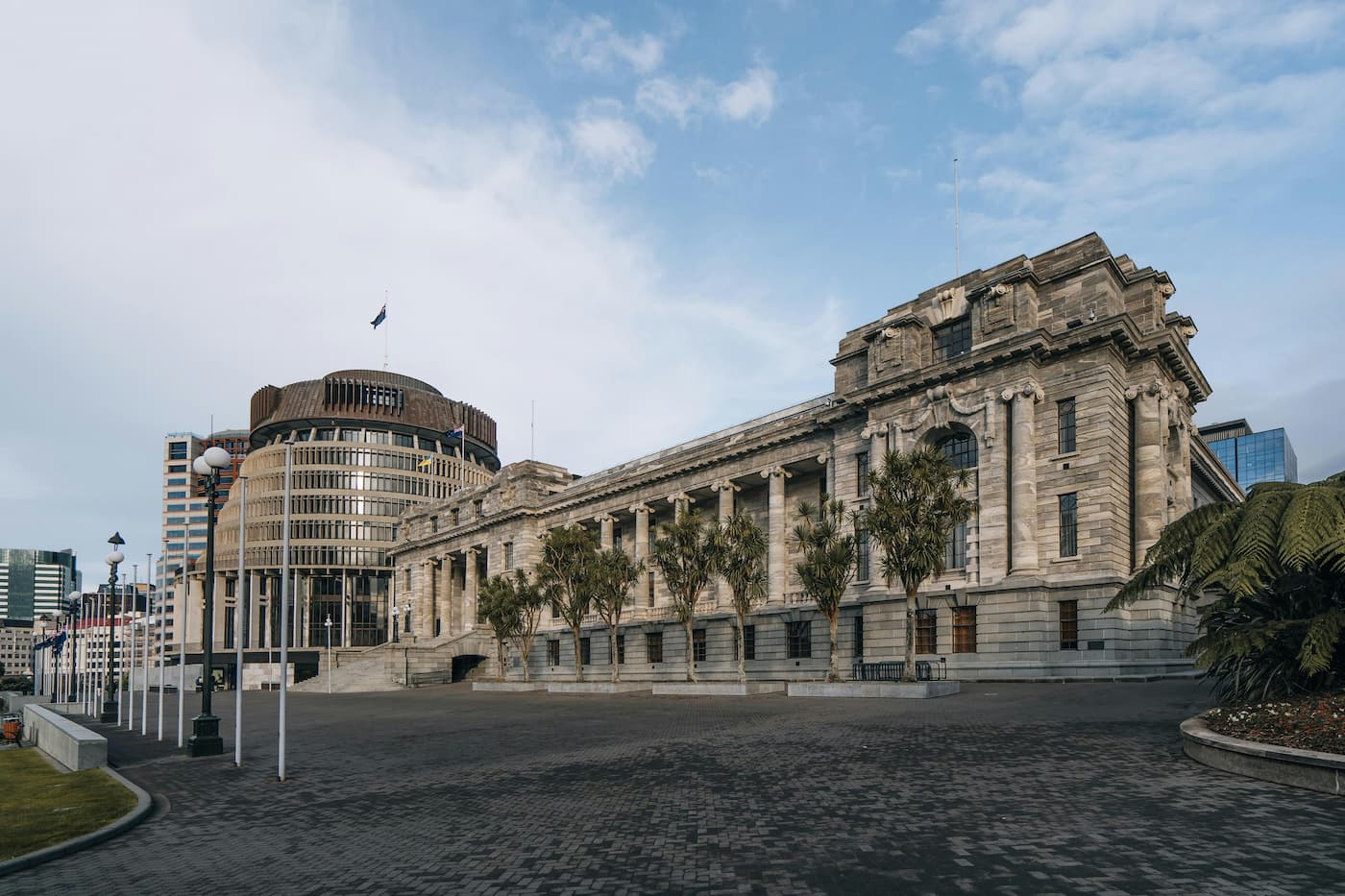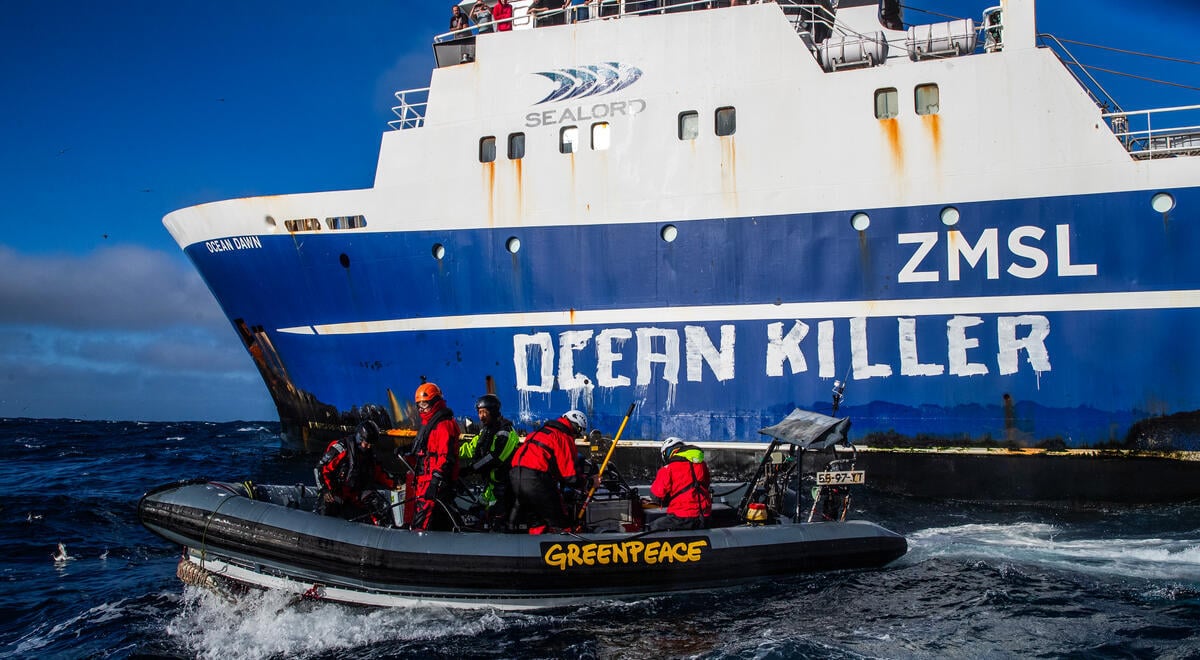One of my earliest memories as a young child in the Philippines is collecting glass bottles of Coca-Cola from our house during big holiday reunions or family celebrations. Together with my younger sister, we would carry three to five one-liter glass bottles in our small arms and return them to the sari-sari store – our community convenience store – in exchange for a small deposit refund.
I also remember being asked to run errands for my family, and it was my task to get whatever was missing from my grandmother’s recipe for what she was planning to cook that day. I would check our empty canisters from the cabinet and have them refilled in a store nearby. Refilling those bottles was my responsibility, and reusing them brought me pride as a young child.
These are the thoughts that fill my mind whenever I work on global plastic brand audits, picking up plastic sachets, wrappers, and bottles from the dark, polluted beaches and waterways in Manila. I remember, not just for the nostalgia of my youth, but for the memories of witnessing a system that does not rely on throwaway mechanisms. It is a system that works for our community and where a child like me had a place and a role.
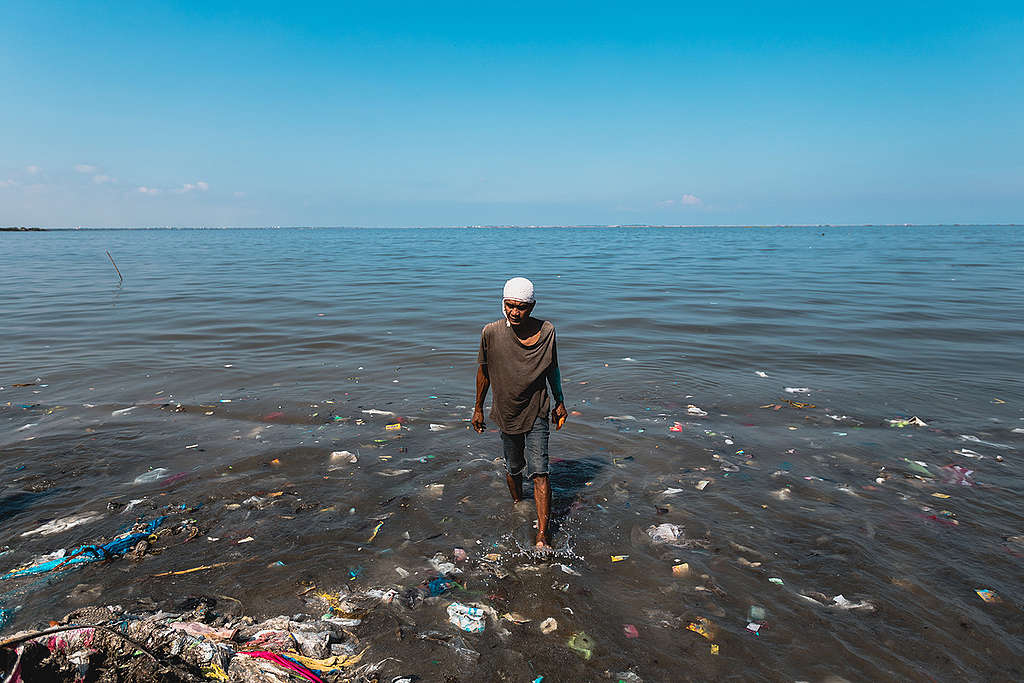
Its replacement? Cheap, throwaway plastic packaging that pollutes our air, water, land, climate and harms our health from the moment it is created. Recently it has even been detected in our blood. Plastic is oil. Oil is fossil fuel. Further extraction of fossil fuels means increasing the chances and severity of disasters in an already drastically changing climate.
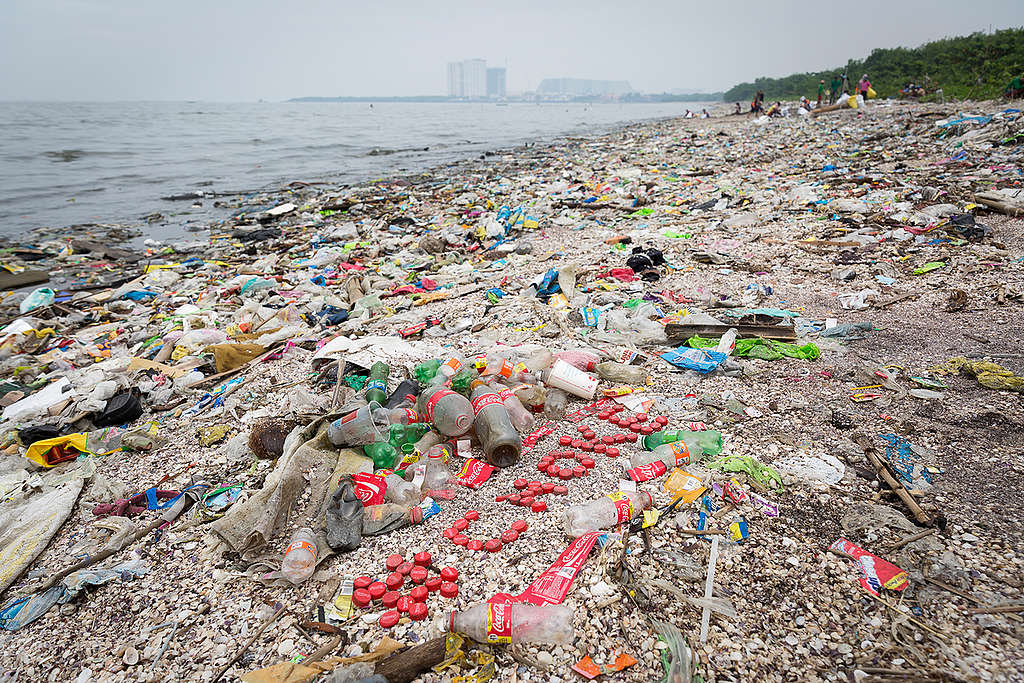
Big brands working hand in hand with the fossil fuel industry are flooding us with plastic
Plastic pollution and the effects of its contribution to the climate crisis have become common in many countries, including Aotearoa. And this is not because people are irresponsible, as big corporations gaslit us into believing, but because those big corporations have been producing so much single-use plastic we cannot cope. If big brands like Coca-Cola, have their way, plastic production could triple by 2050. That is deeply alarming, especially as we grapple to keep global warming below 1.5 degrees.
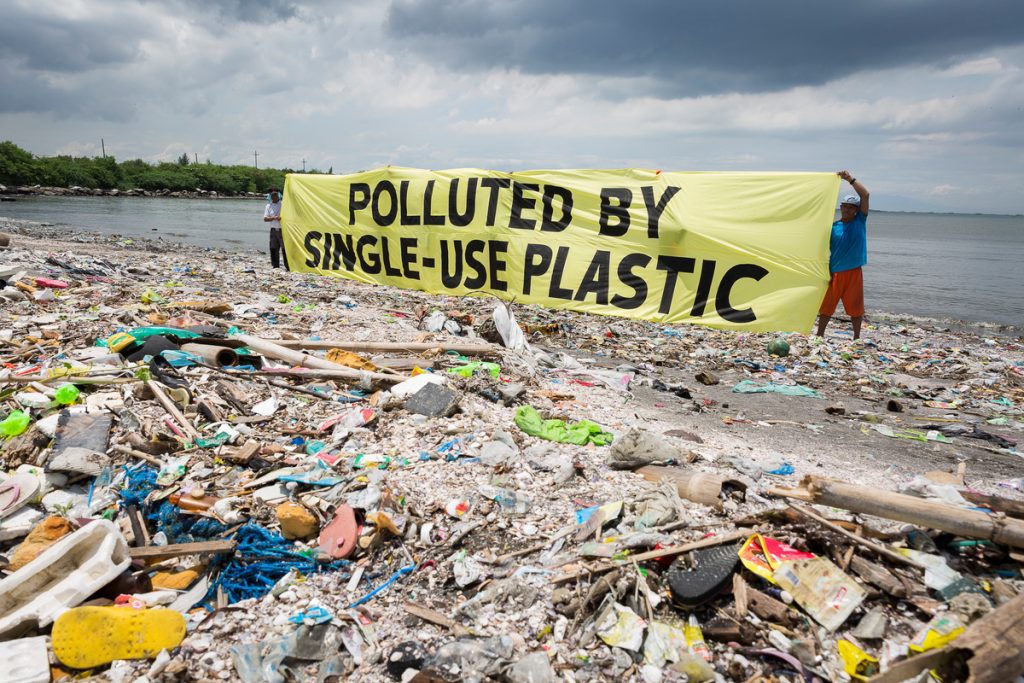
But thanks to millions of people all over the world who are demanding real solutions, things are changing. The recently agreed resolution to negotiate a global plastics treaty is a big step that will keep the pressure on big oil and big brands to reduce their plastic footprint and switch their business models to refill and reuse. Even Coca-Cola, which has been named as the top plastic polluter in global brand audits every single year since 2018, just recently announced that at least 25% of their packaging (in some places) will be reusable or refillable by 2030. This doesn’t extend to Aotearoa, so we will keep building the pressure on Coke New Zealand.
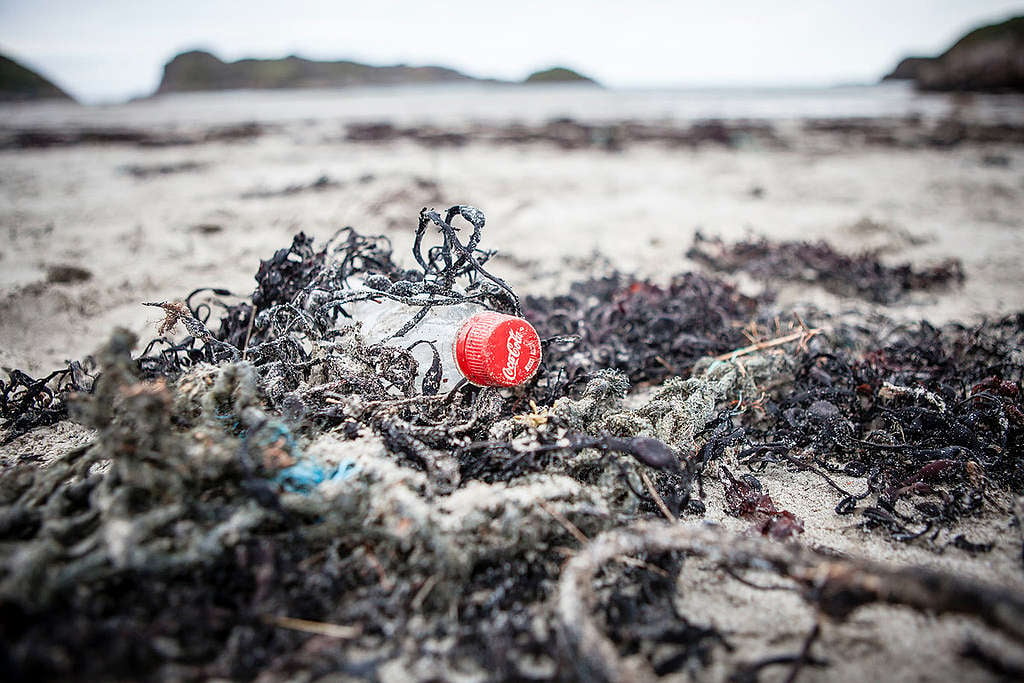
Single-use plastic bottles are one of the worst offenders. They are killing precious seabirds like toroa (albatross) and they wind up in landfills or incinerated offshore. Recycling is not working. To get serious about plastic we need to make Coca Cola turn off the plastic tap.
Take ActionBig brands must end their addiction to single-use plastic packaging
But this is not enough, and big brands need to do more and increase their investment in reusable and refillable systems. This is the way of the future. If they are true leaders of the industry, they will not hold on to false solutions that do not even make a dent in the monstrous problem they have created and move away from single-use plastic.
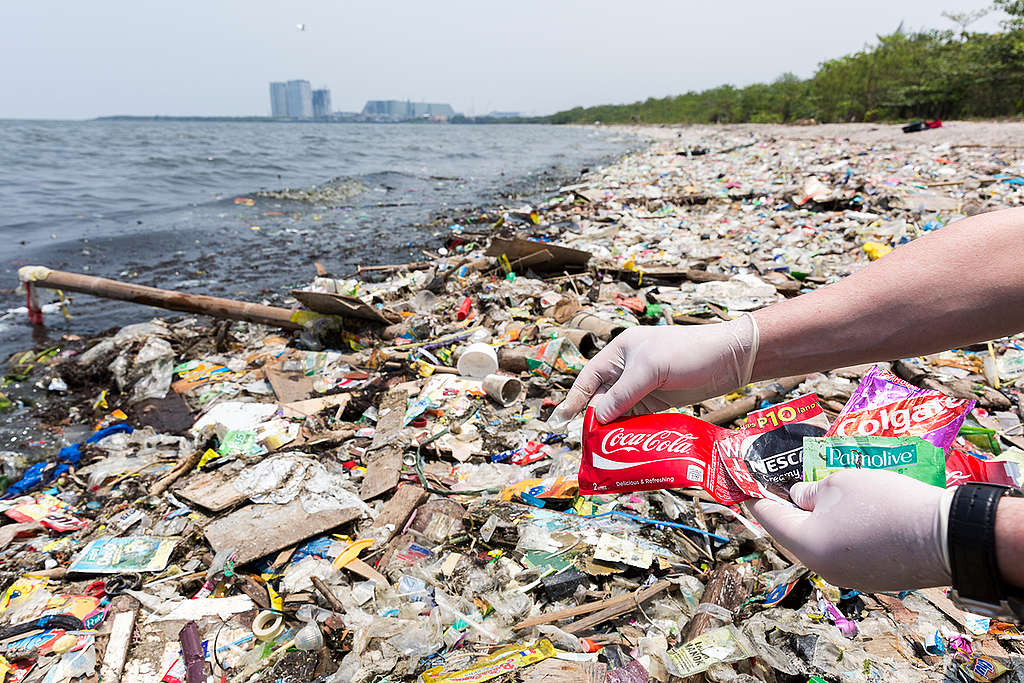
Coca-Cola must double its commitment to 50% reuse and refill by 2030, and they must do it everywhere. PepsiCo and Nestlé must catch up and do more by committing to set 50% reusable packaging targets by 2030. These are simple numbers that will make a huge difference to our communities, planet and climate and just the start of what needs to happen.
As we move to an uncertain future, people will do what needs to be done – to continue to expose, question, and reject the gaslighting, greenwashing, and false solutions that are being waged by big brands. As stakeholders of big brands meet this spring to plot the future of their corporations, they need to seize the moment and make sure that they are on the right side of history – or risk being the brand of plastic pollution for generations to come.
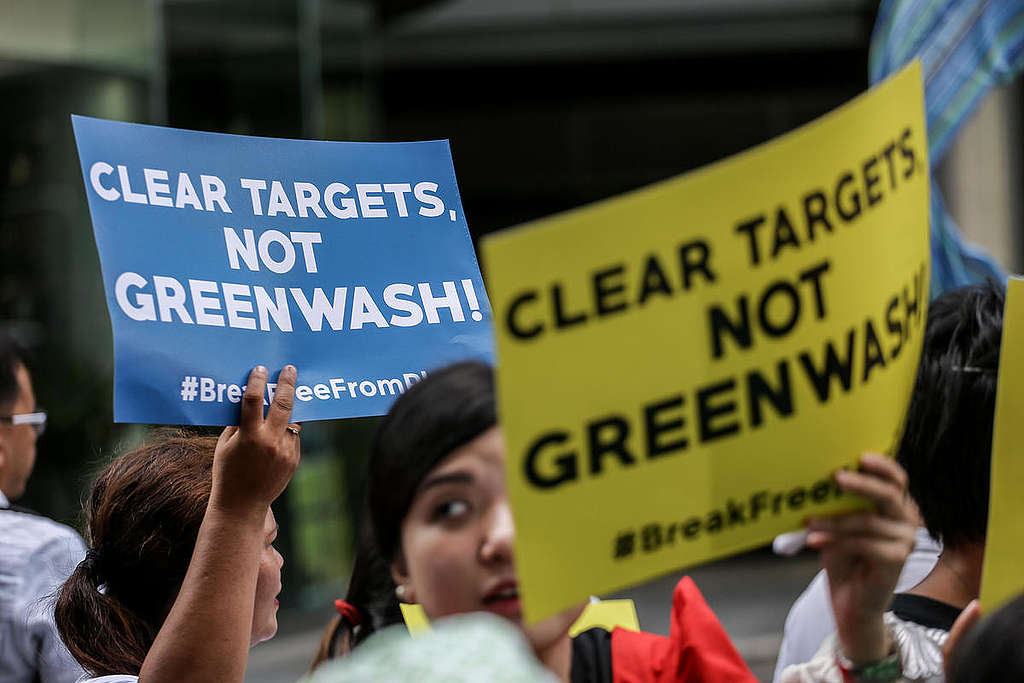
Things are moving and positive developments are happening, but we will demand more actions and better commitments because we are living in a very critical time for our planet and our climate. We will keep on pushing back because we have a future to win.
Greenpeace Aotearoa is pushing hard for the New Zealand Government to support a strong global plastics treaty, and to ban single-use plastic bottles because they are one of the worst culprits in the plastic pollution crisis and not included in the Labour Government’s new plan to phase out some single-use plastics.
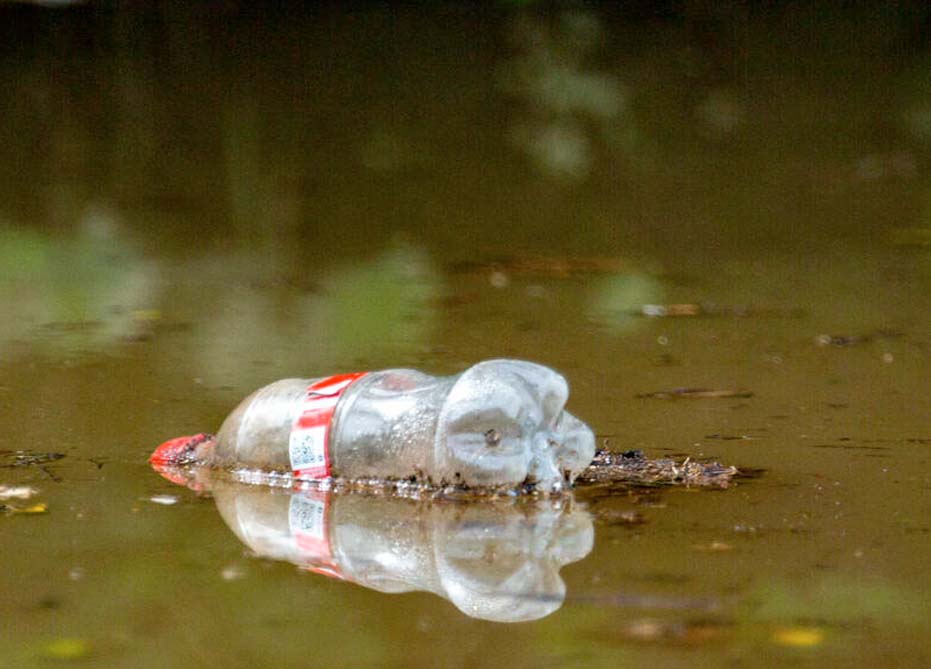
Call on the NZ Government to stand firm and support a strong global plastics treaty.
Take Action
